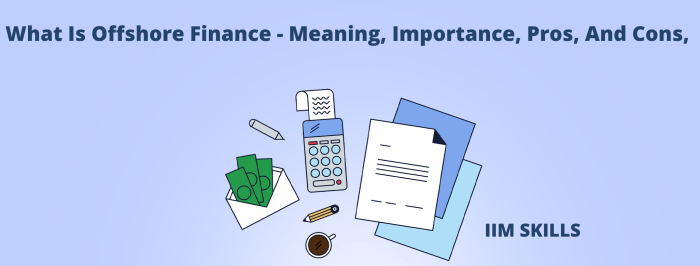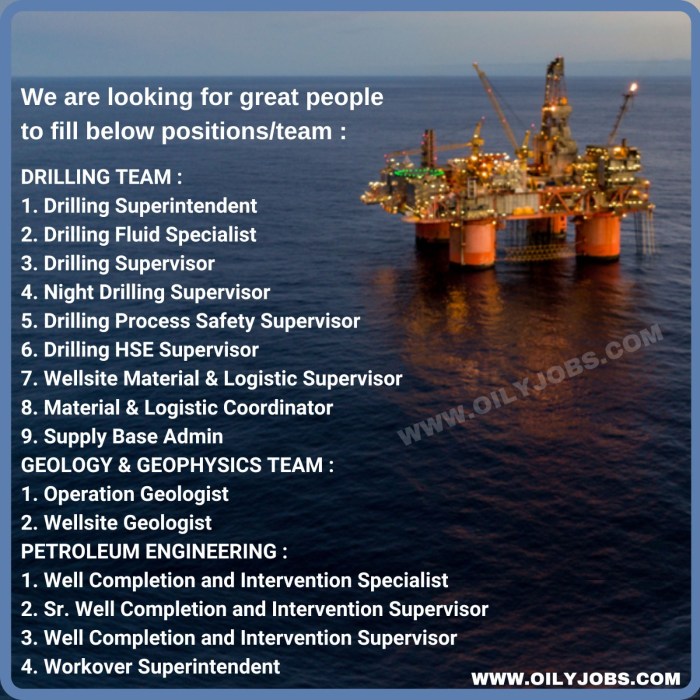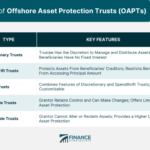Offshore Finance Jobs offer a compelling blend of high earning potential and international experience. This guide delves into the diverse roles within this sector, exploring career paths, geographic hubs, compensation packages, and the unique challenges and opportunities that await professionals in this dynamic field. We’ll examine the various job titles, required skills, and career progression within offshore finance, comparing and contrasting them with onshore counterparts.
Furthermore, we’ll analyze the economic and regulatory factors that shape the industry landscape in key global locations.
From understanding the intricacies of tax implications and legal frameworks in different offshore finance centers to navigating cultural differences and maximizing career advancement, this comprehensive overview aims to equip you with the knowledge necessary to make informed decisions about a career in offshore finance. We will also discuss the importance of networking and building relationships for career growth, and provide a step-by-step guide for those looking to transition into this exciting field.
Geographic Locations and Industry Hubs

The global landscape of offshore finance is characterized by a concentration of activity in specific geographic locations, each offering a unique blend of economic advantages, regulatory frameworks, and tax incentives. These locations, often referred to as offshore financial centers (OFCs), attract significant investment and employment in the finance sector. Understanding the factors driving their success and the nuances of their legal and tax environments is crucial for anyone considering a career in offshore finance.The attractiveness of these locations stems from a confluence of economic and regulatory factors.
Economically, many OFCs offer highly developed infrastructure, skilled workforces, and stable political environments, fostering a climate conducive to international business. Regulatory factors include streamlined processes for company registration and operation, often coupled with light regulatory oversight, which can reduce operational costs and complexity. However, it’s important to note that this lighter regulation can also attract activities that are less ethically sound, underscoring the need for due diligence and compliance.
Major Geographic Locations and Their Characteristics
Several regions consistently emerge as dominant players in the offshore finance industry. The Caribbean, particularly the British Virgin Islands, Cayman Islands, and Bermuda, have long been established as major hubs, leveraging their favorable tax regimes and established legal frameworks. In Asia, Hong Kong and Singapore stand out, benefiting from their strategic geographic locations, robust financial infrastructure, and strong reputations for regulatory compliance.
Europe also boasts significant offshore finance centers, including Luxembourg and Dublin, which attract businesses due to their access to the EU market and their sophisticated financial ecosystems. Finally, certain jurisdictions in the Middle East, such as Dubai, are rapidly emerging as significant players, driven by economic diversification strategies and ambitious infrastructure development.
Comparative Analysis of Tax Implications and Legal Frameworks
Comparing the tax implications and legal frameworks across three diverse OFCs – the Cayman Islands, Luxembourg, and Hong Kong – reveals the varied approaches to attracting international finance. The Cayman Islands are known for their zero corporate tax rate, attracting many hedge funds and investment firms. However, their regulatory framework has faced increasing scrutiny in recent years, leading to greater emphasis on transparency and anti-money laundering measures.
Luxembourg, while also offering favorable tax treatments for certain types of investment, maintains a more comprehensive regulatory environment aligned with EU standards. This offers a balance between attracting international finance and ensuring regulatory compliance. Hong Kong, with its common law system and established legal infrastructure, offers a stable and predictable environment, attracting businesses with its low tax rates and its role as a gateway to the Chinese market.
However, the increasing integration of Hong Kong into the Chinese legal and economic system is shaping its future regulatory landscape.
Illustrative Map of Offshore Finance Job Distribution
A hypothetical map illustrating the global distribution of offshore finance jobs would show a clear concentration in several key regions. The Caribbean would be highlighted with clusters indicating the high density of jobs in the British Virgin Islands, Cayman Islands, and Bermuda. East Asia would display prominent clusters in Hong Kong and Singapore. Europe would show significant concentrations in Luxembourg and Dublin, while a smaller but growing cluster would be visible in the Middle East, primarily in Dubai.
The map would also use color-coding or shading to represent the relative size and importance of each cluster, reflecting the number of jobs and the overall contribution of each region to the global offshore finance industry. Less densely populated areas would be represented with lighter shading or smaller icons, indicating a lesser concentration of offshore finance-related employment. The map would effectively visualize the geographical distribution of this specialized sector, illustrating the concentration of activity in specific, strategically located hubs.
Career Progression and Development: Offshore Finance Jobs

A career in offshore finance offers diverse pathways for professional growth, with opportunities for specialization and advancement dependent on individual skills, experience, and ambition. The dynamic nature of the industry, coupled with its global reach, creates a constantly evolving landscape of opportunities for those willing to adapt and learn. This section Artikels typical career paths, available development opportunities, the significance of networking, and a step-by-step guide for transitioning into this field.
Typical Career Paths and Specializations
Offshore finance roles span a wide range of specializations, from accounting and auditing to investment management and wealth planning. Entry-level positions often involve roles like junior accountant, financial analyst, or compliance officer. With experience and demonstrated competence, individuals can progress to senior roles such as senior manager, director, or partner within a firm. Specialization can develop in areas such as tax planning for high-net-worth individuals, fund administration, or regulatory compliance.
For example, a junior accountant might progress to a senior accountant, then a team leader, and eventually a manager overseeing multiple teams within a fund administration company. Similarly, a financial analyst could specialize in investment banking, portfolio management, or risk management, leading to roles like portfolio manager or chief risk officer.
Professional Development Opportunities
Continuous professional development is crucial for success in offshore finance. Numerous certifications enhance career prospects and demonstrate commitment to professional excellence. Examples include the Chartered Financial Analyst (CFA) charter, the Certified Public Accountant (CPA) designation, and various specialized certifications related to anti-money laundering (AML) compliance and financial crime prevention. Many firms also offer internal training programs covering areas such as regulatory updates, advanced financial modeling techniques, and leadership skills development.
Furthermore, attending industry conferences and workshops allows professionals to network, learn about emerging trends, and expand their knowledge base.
The Importance of Networking and Building Relationships, Offshore Finance Jobs
Networking is paramount in the offshore finance industry. Building strong relationships with colleagues, clients, and industry professionals opens doors to new opportunities, enhances career visibility, and provides valuable insights into market trends and best practices. Attending industry events, joining professional organizations, and actively participating in online forums and groups are effective ways to expand one’s network. A strong network can lead to referrals for new roles, collaborations on projects, and access to mentorship opportunities that significantly accelerate career progression.
Transitioning into an Offshore Finance Role
For individuals seeking to transition into offshore finance from a related field, a strategic approach is essential. The following steps provide a structured framework for a successful transition.
Step 1: Identify Your Transferable Skills and Assess Skill Gaps. Analyze your existing skills and experience to determine their relevance to offshore finance roles. Identify any skill gaps and develop a plan to address them through further education or training.
Step 2: Research Offshore Finance Firms and Specializations. Thoroughly research firms operating in the offshore finance sector, focusing on those aligning with your interests and skill set. Understand the different specializations within the industry and identify your preferred area of focus.
Step 3: Obtain Relevant Certifications and Enhance Your Qualifications. Pursuing relevant certifications, such as the CFA or CPA, demonstrates commitment to the field and enhances your competitiveness in the job market. Consider undertaking additional training programs to develop specialized skills.
Step 4: Network and Build Relationships within the Industry. Actively engage in networking activities, attending industry events, and connecting with professionals on LinkedIn. Building relationships can open doors to valuable insights and potential job opportunities.
Step 5: Tailor Your Resume and Cover Letter to Highlight Relevant Experience. Customize your resume and cover letter to showcase your transferable skills and experience in a way that resonates with the specific requirements of offshore finance roles. Highlight achievements and quantify your contributions wherever possible.
Step 6: Prepare for Interviews and Showcase Your Knowledge. Thoroughly research the companies and roles you are applying for. Prepare for behavioral and technical interview questions, and demonstrate your understanding of the offshore finance landscape.
A career in offshore finance presents a unique opportunity for ambitious professionals seeking international exposure, high earning potential, and significant career advancement. While challenges exist, including regulatory compliance and cultural adjustments, the rewards—both financial and experiential—can be substantial. By understanding the diverse job roles, geographic hubs, compensation structures, and career progression paths within the industry, individuals can strategically position themselves for success in this globally interconnected sector.
This guide serves as a starting point for exploring the multifaceted world of offshore finance and making informed career choices.

